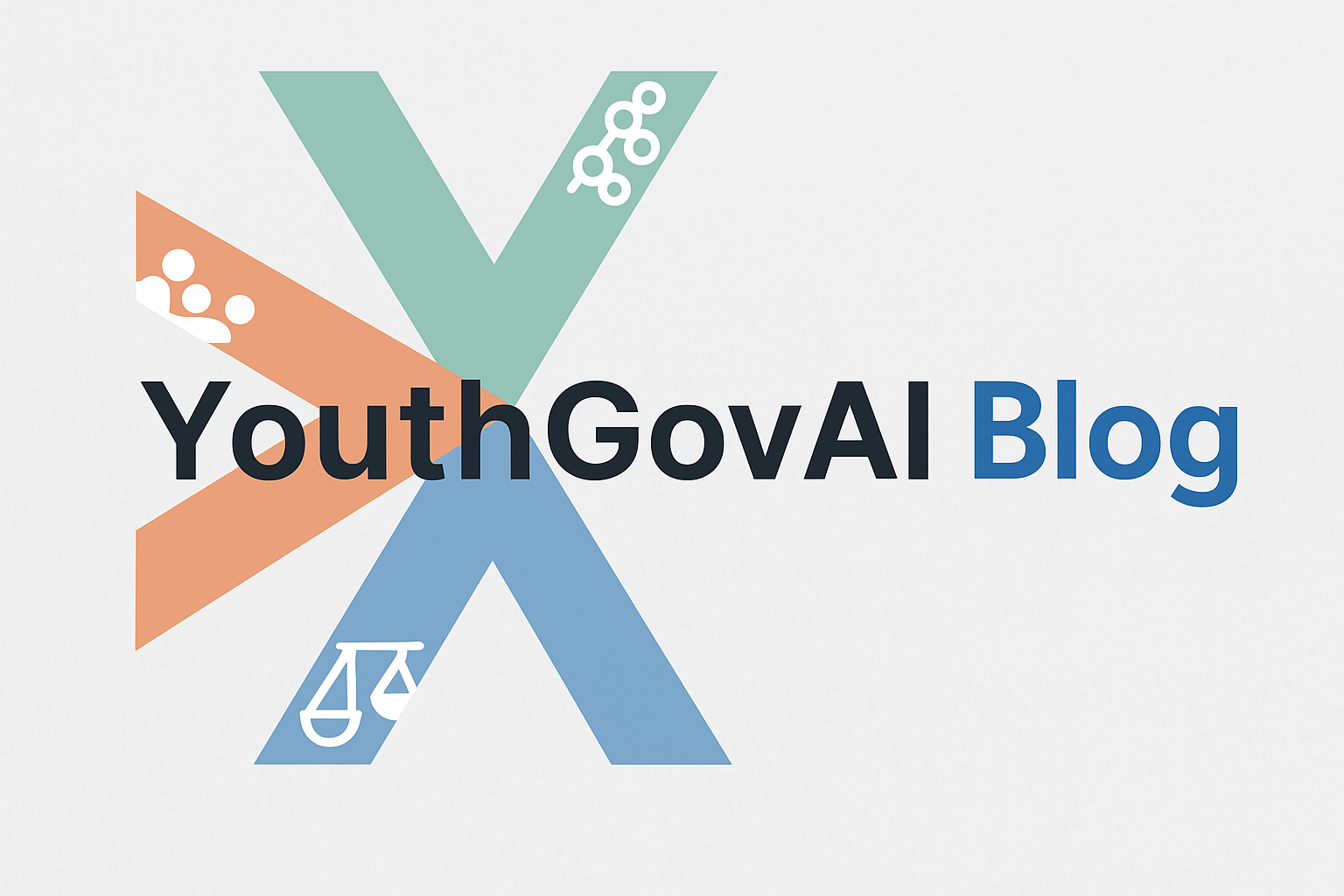What does it take to prepare young people for an AI-driven future and make them have a say in it? We didn’t want to guess. So, we asked.
As part of the YouthGovAI project, Holger Haberstock and Janosch Ptassek from Eurosoc#DIGITAL recently hosted a series of online discussions in Germany. Together with young people, tech experts, policy makers and civil society organisations we wanted to explore what young people should know about AI, what opportunities and risks it holds for them, and why they should get involved in discussions on AI governance.
Here is what we´ve learned:
Digital natives don’t mean digitally wise
One insight that popped up various times: Many young people are skilled in using AI tools but that doesn’t mean they understand what these systems do, how they work, or where the data comes from. Several guests described this gap between application and understanding where young users while seeing AI as almost something natural often overestimate their competence while underestimating the risks. As one participant put it, “Just because it feels intuitive doesn’t mean it’s harmless” or a quote from another expert who described this shift as the move from “digital native to digital naïve.”
Risks are real – and often invisible
Beyond this there were several risks AI poses to young people that our guests identified.
- Young people often share personal information with AI systems without understanding how that data is stored, used, or monetized. This creates risks not just for individual privacy, but for long-term digital autonomy.
- From chatbots to recommendation engines, AI can simulate empathy but it doesn’t feel. Several experts voiced concern about parasocial relationships with AI companions, especially among younger users. Over time, this could distort social development, empathy, and emotional resilience.
- Deepfakes, AI-generated news, and algorithmic filtering all make it harder to tell what’s real. Young people may struggle to verify content or recognize manipulation especially in fast-moving social media environments.
- If AI becomes the go-to for every task — writing, planning, even thinking — young people may lose opportunities to develop core skills like creativity, research, or independent problem-solving.
- Not all young people have the same access to technology, support, or education. As AI becomes more integrated into school, work, and society, those with fewer resources may be left further behind — deepening the digital divide.
Youth are stakeholders. Why aren’t they treated like it?
Several experts criticised the lack of youth representation in key AI policy processes – especially the development of the EU AI Act. Despite being one of the groups most impacted by the future of AI, young people are rarely consulted directly. But not only that one participant said that “It’s striking — and honestly quite concerning — how we’re letting young people face these massive transformations, where an AI-driven future is only one among many, almost completely unprepared.”
AI can’t fix inequality. But it can make it worse.
And parallel to that, experts warned against the seductive logic of techno-solutionism. AI is often promoted as the answer to everything – from education to climate change – but this can distract from necessary systemic changes. One participant raised a key point: we must distinguish between desirable and undesirable AI-driven changes. Not every innovation is progress. And not everything labelled “smart” is wise.
The bottom line for us
Young people are already living with AI. The question is whether they’ll do so informed, empowered, and heard and we want to help make that happen.
